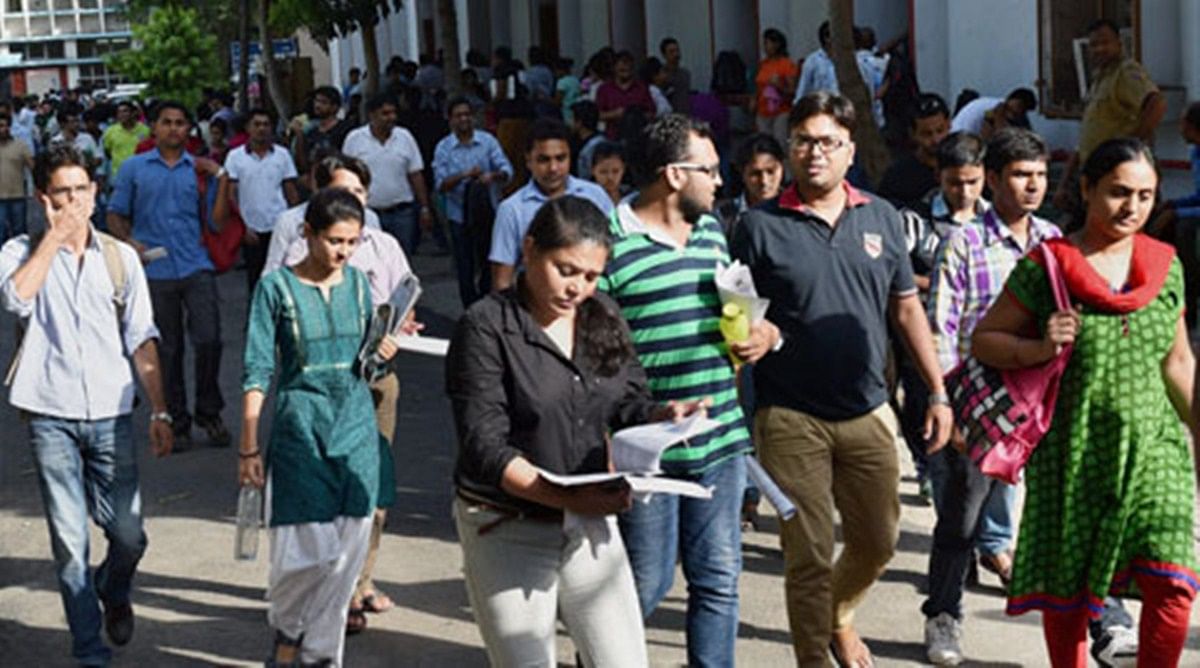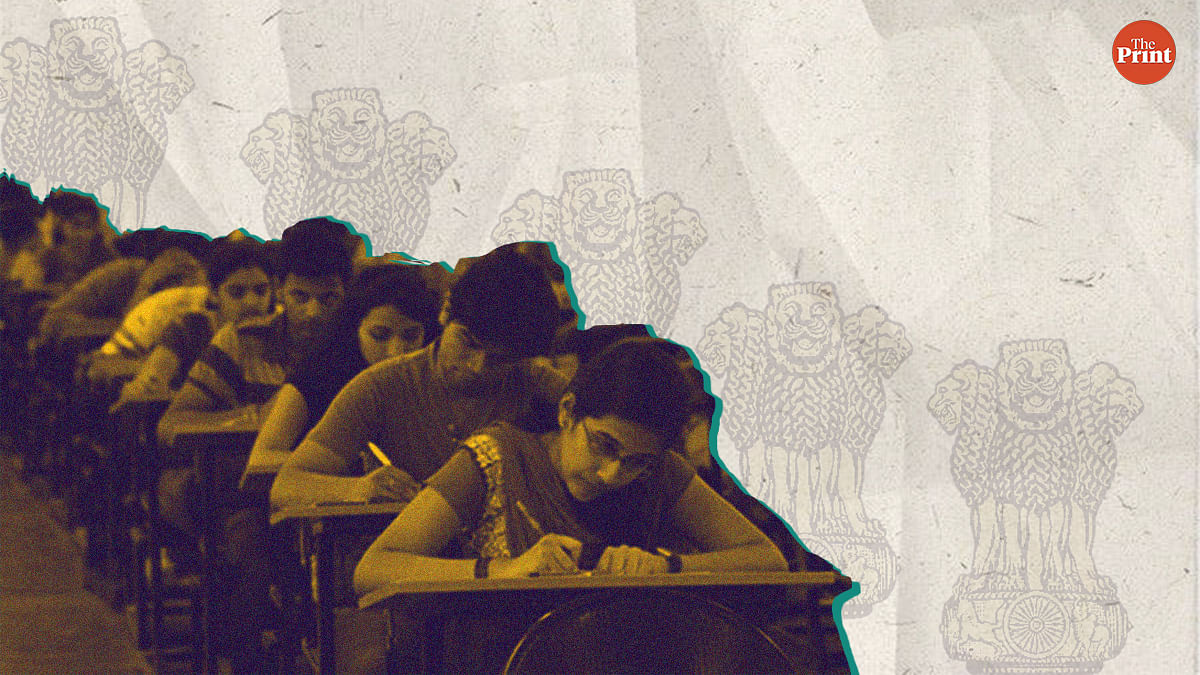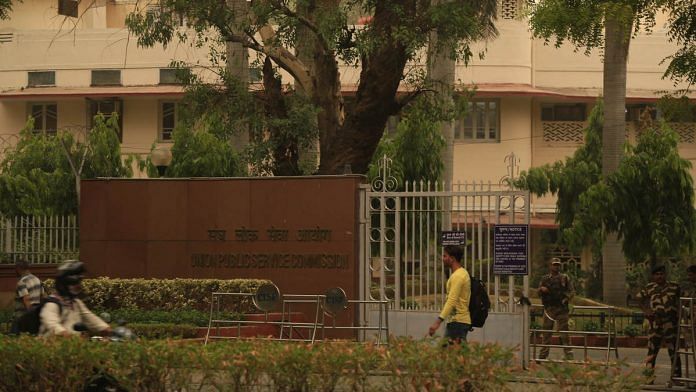Kajal’s dream of becoming an IAS officer was buried under the demands of a new marriage, in-laws and endless kitchen duties in her joint family in Delhi’s Najafgarh. Most of the ‘good’ UPSC coaching institutes are in Karol Bagh, a two-hour commute, and charge lakhs of rupees in fees.
The 23-year-old then stumbled upon the growing phenomenon of ‘affordable UPSC’ — online classes that Kajal can now attend for a fraction of the cost from the privacy of her home.
This affordable, alternate mode holds the potential to radically transform the composition of India’s steel frame – going deeper into smaller towns and poorer families and bringing a more diverse talent pool. Already, the numbers are rising. A record 11.52 lakh people applied for the civil services 2021 exam.
“Offline coaching costs lakhs of rupees, and I was not sure if my in-laws would give me the money. But I have some money saved from my marriage and can use that to enroll in an online UPSC course,” says Kajal who plans to start the classes next month so that she can take the exam in 2024. She’s hoping to use her husband’s laptop for the lectures.
Over the last two years, there’s been a surge in edtech platforms such as UPSC Wallah and StudyIQ Education offering online UPSC classes. They are cashing in on the hard lessons learned during the pandemic when physical classrooms gave way to virtual tutorials. What’s more, the courses are structured but flexible, cheaper by lakhs of rupees, and more convenient to run than brick and mortar coaching institutes in Delhi’s UPSC coaching hubs such as Karol Bagh and Mukherjee Nagar.
For thousands of young aspirants like Kajal, who are constrained by time and money, online programmes are keeping the dream alive. Platforms like StudyIq and UPSC Wallah offer online courses for anywhere between Rs 5,000 and Rs 19,000.
It’s a far cry from physical coaching institutes where a foundation course can cost Rs 1.5-1.6 lakh. Here, students are paying to prepare for just four General Studies papers. A Civil Services Aptitude Test (CSAT), which is a compulsory part of the UPSC prelims, is another Rs 20,000-30,000. On top of that, there’s the living expenses if the aspirant is relocating to another city or town, which means a total expense of Rs 4-5 lakh a month.
Also read: YouTube is the new Mukherjee Nagar for UPSC students. Tutors are influencers
An ‘affordable’ alternative
The bylanes of Karol Bagh and Mukherjee Nagar are jammed with posters and billboards of coaching institutes promising success. But the entry of virtual UPSC courses have changed the rules. In many ways, they are a game-changer in what experts estimate is a thriving Rs 3,000 crore industry. And they are reaching out to potential clients in small towns and villages.

It’s the perfect option for 23-year-old Akriti from Fazilka in Punjab near the Pakistan border. Most UPSC aspirants from the district go to coaching institutes in Chandigarh—an option that was not feasible for Akriti. Instead, she enrolled in StudyIQ in June 2022 and has no regrets so far.
“Studying is more comfortable and productive. Through online coaching, I have more time for self study,” she says. “Now I don’t have to worry about house chores like washing clothes, doing dishes or setting up my almirah.”
StudyIQ and UPSC Wallah have built their reputation on the back of their online courses. Older, established brands that offered only physical classes have also started conducting online courses. Kerala-based Fortune IAS, for instance, has launched e-learning foundation courses.
Coupled with the rise in UPSC influencers on YouTube, the elusive pursuit of civil services is now no longer the special passion project of a chosen few. Anybody can take a crack at it.
In Meerut, 22-year-old Priyanka’s father—an electrician—could not afford to send her to Delhi to join a traditional UPSC training institute. But he didn’t want to discourage her. An online course on StudyIQ was a happy compromise. Every day, Priyanka logs in for the live online sessions, and clears her doubts with the instructors.
“Most of the students studying in these online coaching classes are from Tier 2 and Tier 3 cities,” said Mohit Jindal, StudyIQ’s co-founder and MD.
If the pandemic forced schools, coaching classes and colleges to adapt to virtual classrooms, then it also showed students the potential of learning without geographical limitations.
“All this wasn’t there when I was preparing for the UPSC in 2010,” says Ashish who shifted from Rajasthan to Old Rajinder Nagar in Delhi. He spent over Rs 70,000 a decade ago on coaching fees alone.
“It was a huge burden because I come from a farming family. I remember feeling ashamed asking my family for money at the end of every month. I gave seven years of my life to this exam, and in those seven years I did not buy any new clothes. I used to feel guilty doing anything other than study,” he says. Ashish couldn’t make the cut and is in a corporate job in Pune.
For a majority of students, the UPSC examination cannot be cracked at the first attempt. It’s a marathon that requires patience, fortitude, and a comfortable financial buffer. Only a privileged few can enroll in coaching institutes for years on end.

Unlike Ashish, it’s not too late for 27-year-old Rahul who moved to Old Rajinder Nagar from Varanasi. Every month, his parents send him Rs 15,000, of which Rs 8,000 goes towards rent. Given the mounting expenses, he’s contemplating returning to Varanasi and enrolling in an online course.
“The biggest reason behind coming to Delhi was that there was no coaching in our hometown. Now online coaching is available. Study material can also be ordered online or by post. I am thinking of going back home. At least my family will save money this way,” says Rahul.
But online courses can be a lonely journey, especially for students who thrive on companionship and competition.
“I missed the social connection. In offline coaching, we take classes with hundreds of students. We see our competitors every day and this motivates us,” says 29-year-old Ujjwal from Jharkhand, who has again joined a coaching institute in Delhi’s Karol Bagh.
Also read: For these UPSC aspirants, Covid isn’t over. It killed their IAS dream, now a fight unending
From Tawang to Tripura
With an eye on students in remote towns, traditional coaching institutes are setting up physical centres in Tier-2 and Tier-3 cities as well. The hugely popular Khan Study Group (KSG), for instance, is expanding its brick and mortar presence in smaller cities and towns. It also offers distance learning options where course material is shipped to students.
“KSG has centres in cities like Jaipur, Bhopal, and Indore,” says academician and scholar Dr A.R. Khan, who founded KSG in 2008 and is popular among students as ‘Khan Sir’.
Whether the proliferation of online platforms will sound the death knell for traditional coaching institutes like KSG or not, what’s certain is that the affordable entrants are levelling the playing field, turning out to be an egalitarian solution.
“They open up the possibility for aspirants from Tier 2 Tier 3 cities to be able to be a part of this race,” says retired IAS officer Anil Swaroop. In doing so, these online UPSC coaching centres can affect change within the rank and file of the great machinery that is the Indian bureaucracy.

The biggest challenge online platforms face is improving the quality of coaching. StudyIQ, which began as a YouTube channel in 2015, says it invests heavily in its faculty. Many of its instructors have taught at big coaching centres and have first-hand experience of the interview process as well. From YouTube videos, StudyIQ started “posting the course in pen drives”.
Pen drives with videos and study material would be mailed across India. Today, more than 25,000 students take classes in its courses, while its YouTube channel has over 14 million subscribers. Most are from Uttar Pradesh, Bihar, and Rajasthan.
“We have taken our courses to Tawang in Arunachal where it is difficult to reach through post. We have students in remote areas of Nagaland, Tripura, Arunachal Pradesh,” says Jindal.
Niladri Rath, 27, teaches maths to high school students in a public school in Odisha. He cleared UPSC prelims 2022 with StudyIq’s online classes. “In the beginning, I used to study the courses available in pen drives. There are no coaching centres here in 300-400 km radius. People like me in tribal areas are grateful for such a platform,” says Rath who has twice cleared Odisha PSC prelims and plans to take the exam this year as well along with UPSC prelims.
StudyIQ is profitable and the MD says they are looking at ways to provide flexible payment options to students. “The fee of Rs 19,000 may be a small amount for you and me but it is too much for a father doing agriculture in some village to pay in one go,” Jindal said.
One of the newest entrants in the UPSC online coaching arena is UPSC Wallah, an offshoot of Physics Wallah, which has established itself firmly in the NEET and JEE market. In October 2022, it launched its online UPSC coaching course.
“According to last week’s data, we have 41,000 thousand students enrolled in our UPSC courses,” said Ankit Gupta, chief business officer, Physics Wallah. It charges Rs 7,000 for the 12-month-long foundation course. “Even students who have invested in offline coaching have enrolled with us because we are cheaper and better.”
Most e-platforms offer courses in Hindi, English, and even Hinglish.
“Most of our clients are from the north and west of India. And now, we have launched English courses as well to target south India,” Gupta adds.
This means more and more students like Kajal will emerge out of the shadows to realise their UPSC dreams. “With this new married life, things will be difficult for me but I am glad that I have a chance now. There are many women who want to study but can’t. This way I want to set an example that marriage is not the end. With options and efforts, you can give your dreams a chance,” said Kajal.
This feature is part of a series called Affordable UPSC. You can read all the articles here.
(Edited by Prashant)



